The Life Sciences Law & Policy Center at BCLT complements the world-class research taking place in our IP & Competition Center. The Center offers a unique forum for students, academics, practitioners, and companies to explore IP, innovation, and regulatory issues affecting the life science industry.
The Life Sciences Law & Policy Center was established in late 2021, and is led by inaugural director Allison Schmitt. Under her leadership, the Center has supported innovative research related to intellectual property protection for drug innovations, bioethics, FDA regulations, AI and healthcare data, and health data privacy regulations. The Center also runs a robust programming schedule, with events exploring cutting-edge IP, regulatory, and privacy issues impacting the life sciences industry. Finally, the Center has supported the development of a broad life sciences curriculum for Berkeley Law students, to prepare them for practice in these fast-changing and complex areas of the law.
The strength of the Life Sciences Law & Policy Center is its breadth of subject-matter expertise. The Director, Faculty, Fellows and Lecturers that drive and contribute to this Center are among the world’s leading experts on the unique issues impacting the life sciences and health care areas. Notably, this Center also analyzes the impacts that life sciences innovations are having on society, including the important issues of civil case management and criminal justice and social justice being researched in our Center for Technology, Justice & the Courts. The cross-pollination of this type of expertise provides a unique environment for education, research, and policy development.
BCLT hosts and sponsors academic-focused events and industry-focused events–most of which are open to the public at no charge. Be sure to check out the most recent news on the Life Sciences Law & Policy Center as well as BCLT’s upcoming events. As for past events, many of them are available on-demand–and free of charge–in our video library, B-CLE. The Events tab below lists all events sponsored by the Life Sciences Law & Policy Center since its inception in late 2021.
As the Life Sciences Sector Booms, Expansive, Multifaceted Life Sciences Program Puts Berkeley Law at the Forefront
By Gwyneth K. Shaw, Berkeley Law | 08/20/2024
“The Berkeley Center for Law & Technology’s (BCLT) Life Sciences Law & Policy Center debuted in late 2021, on the heels of the COVID-19 pandemic and amid a bright spotlight on the monetary and societal value of innovative treatments.
Just under three years later, it has blossomed into an extensive hub equipped to help practitioners, students, scholars, and life sciences entrepreneurs alike tackle important issues impacting the future of the life sciences industries, including drug pricing, current regulatory challenges, and how AI should be responsibly incorporated into life sciences applications and companies.”
Read more here>>
A Global Blueprint for Patent Judging
By Berkeley Law Sidebar | 05/11/2023
“Professor Peter S. Menell and Berkeley Judicial Institute Executive Director Jeremy Fogel collaborated with the World Intellectual Property Organization (WIPO) in conceiving, designing, and advising “An International Guide to Patent Case Management for Judges(opens in a new tab),” which was recently released. The guide includes an overview of the patent system in each of the major patent nations and the European Patent Office, as well as explanations of the roles of the judiciary and patent offices.”
Read more here>>
Unique Events and a New Platform Grow Berkeley Center for Law & Technology’s Thriving Community
By Gwyneth K. Shaw, Berkeley Law | 06/13/2022
“The IP & Tech Month sessions, all recorded in April, run the spectrum from traditional IP law to a huge variety of specialties, including artificial intelligence, music copyright issues, and even plant patents. Allison Schmitt ’15, a seasoned litigator who took the helm of the Life Sciences Project last year, says the programming’s depth and breadth shows BCLT can bring experts together to engage with just about any area of IP and technology law. ” Read more here>>
Booster Shot-The Berkeley Center for Law & Technology adds life sciences to its expanding portfolio
By Berkeley Law | 11/02/2021
“For more than 25 years, the Berkeley Center for Law & Technology has been a hub for the legal and regulatory intersection of the cutting edge — a lodestar for academics, practitioners, and students at Berkeley Law and around the world.
Now, with COVID-19 driving home the importance of breakthrough medical technologies and the biotech industry booming in the Bay Area, BCLT is adding a life sciences initiative to its already robust agenda. The Life Sciences Project will explore intellectual property, innovation, and regulatory issues across myriad products and technologies, from drug discovery to artificial intelligence to healthcare data.”
Read more here>>
FACULTY
 Director | Allison A. Schmitt is a Fellow at Berkeley Law, and the Director of the Berkeley Center for Law and Technology’s Life Sciences Law and Policy Center. Her scholarship focuses on exploring theoretical and practical issues at the interface of life sciences and the law, including IP, regulatory, and funding considerations. She is affiliated with the Berkeley Fellowship Program, a joint project between Berkeley Law and the Berkeley Haas School of Business. Prior to her current role at BCLT, Allison clerked for the Honorable Stanley R. Chesler at the District of New Jersey, where she worked extensively on ANDA cases. She then clerked for the Honorable Kathleen M. O’Malley at the Federal Circuit, where she further honed her knowledge of bio-pharma law and case management. She then spent several years in private practice focusing on life science patent litigation, patent counseling, and policy matters. Allison graduated from Berkeley Law with her JD in 2015; prior to her legal career, she earned a PhD in Chemistry from Duke University. Courses and more »
Director | Allison A. Schmitt is a Fellow at Berkeley Law, and the Director of the Berkeley Center for Law and Technology’s Life Sciences Law and Policy Center. Her scholarship focuses on exploring theoretical and practical issues at the interface of life sciences and the law, including IP, regulatory, and funding considerations. She is affiliated with the Berkeley Fellowship Program, a joint project between Berkeley Law and the Berkeley Haas School of Business. Prior to her current role at BCLT, Allison clerked for the Honorable Stanley R. Chesler at the District of New Jersey, where she worked extensively on ANDA cases. She then clerked for the Honorable Kathleen M. O’Malley at the Federal Circuit, where she further honed her knowledge of bio-pharma law and case management. She then spent several years in private practice focusing on life science patent litigation, patent counseling, and policy matters. Allison graduated from Berkeley Law with her JD in 2015; prior to her legal career, she earned a PhD in Chemistry from Duke University. Courses and more »
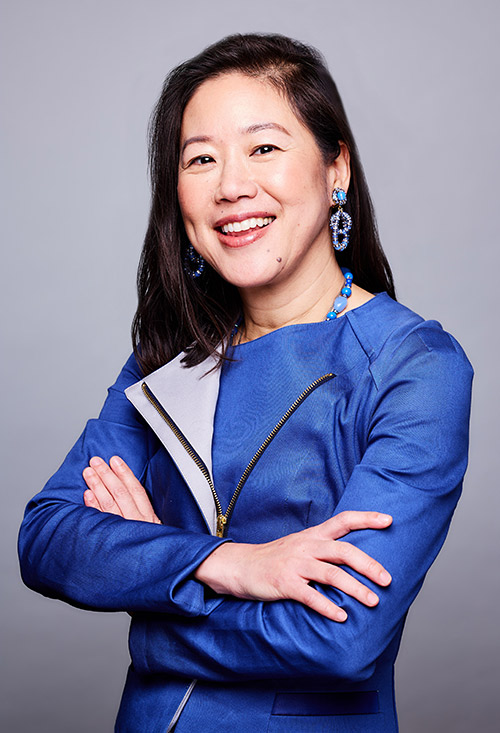 Colleen Chien is a Professor of Law. Professor Chien teaches, mentors students, and conducts cross-disciplinary research on innovation, intellectual property, and the criminal justice system, with a focus on how technology, data, and innovation can be harnessed to achieve their potential for social benefit. She has also published several papers in the life sciences. Publications, courses, and more »
Colleen Chien is a Professor of Law. Professor Chien teaches, mentors students, and conducts cross-disciplinary research on innovation, intellectual property, and the criminal justice system, with a focus on how technology, data, and innovation can be harnessed to achieve their potential for social benefit. She has also published several papers in the life sciences. Publications, courses, and more »
 Peter S. Menell is the Koret Professor of Law. Professor Menell’s research and teaching span intellectual property across the digital technology and entertainment fields, as well as environmental law and policy, property law, law and economics, and judiciary reform. His current teaching focuses on intellectual property law, legal protection for digital technology, technological disruption and social justice, intellectual property protection in the entertainment industries, life sciences and innovation, and judiciary reform. Publications, courses, and more »
Peter S. Menell is the Koret Professor of Law. Professor Menell’s research and teaching span intellectual property across the digital technology and entertainment fields, as well as environmental law and policy, property law, law and economics, and judiciary reform. His current teaching focuses on intellectual property law, legal protection for digital technology, technological disruption and social justice, intellectual property protection in the entertainment industries, life sciences and innovation, and judiciary reform. Publications, courses, and more »
 Rob Merges is the Wilson Sonsini Goodrich & Rosati Professor of Law. Before joining the Berkeley Law faculty in 1995, Robert Merges was a faculty member at Boston University School of Law and served as a visiting professor at Harvard Law School. He has also been a Visiting Professor at Stanford Law School. Merges has authored or coauthored five books, (1) Patent Law and Policy: Cases and Materials; (2) Intellectual Property in the New Technological Age; (3) Legal Protection for Computer Technology; (4) Trademarks, Unfair Competition and Business Torts; and (5) Justifying Intellectual Property. He has also edited six other books.Publications, courses, and more »
Rob Merges is the Wilson Sonsini Goodrich & Rosati Professor of Law. Before joining the Berkeley Law faculty in 1995, Robert Merges was a faculty member at Boston University School of Law and served as a visiting professor at Harvard Law School. He has also been a Visiting Professor at Stanford Law School. Merges has authored or coauthored five books, (1) Patent Law and Policy: Cases and Materials; (2) Intellectual Property in the New Technological Age; (3) Legal Protection for Computer Technology; (4) Trademarks, Unfair Competition and Business Torts; and (5) Justifying Intellectual Property. He has also edited six other books.Publications, courses, and more »
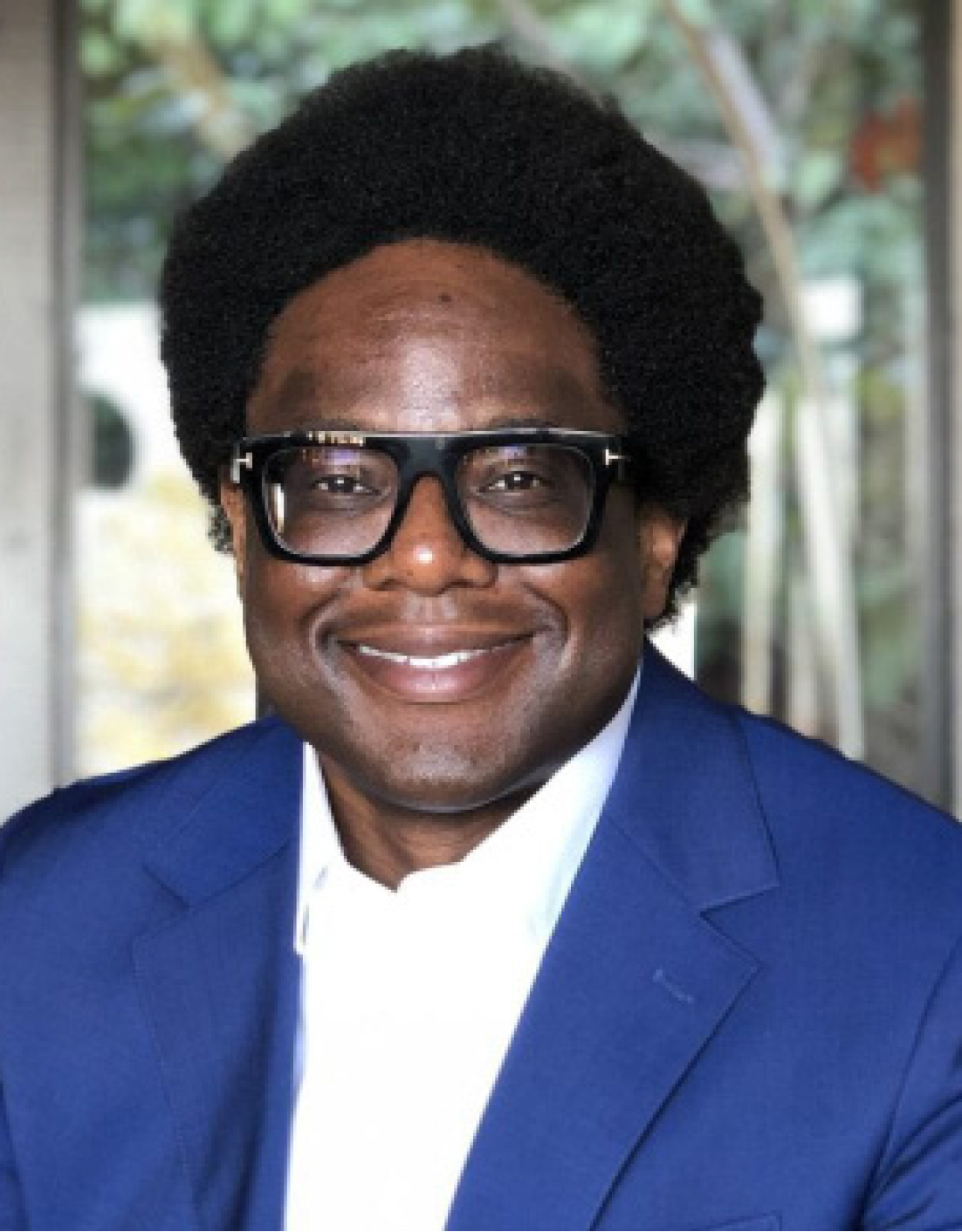 Osagie K. Obasogie is the Haas Distinguished Chair and Professor of Law at Berkeley Law with a joint appointment in the School of Public Health. Obasogie’s scholarly interests include Constitutional law, policing and police use of force, sociology of law, bioethics, race and inequality in law and medicine, and reproductive and genetic technologies. His writings have spanned both academic and public audiences. His first book, Blinded By Sight: Seeing Race Through the Eyes of the Blind (Stanford University Press), was awarded the Herbert Jacob Book Prize. His current work examines the role of science, medicine, and medical professionals in hindering the ability to hold police officers accountable when they use excessive force; analyzes the legacy of the American eugenics movement and its contemporary impact on law, science, medicine, and technology; studies how legal doctrine produces police violence; and exposes the limitations of DNA databases when they are used in criminal investigations. Publications, courses, and more »
Osagie K. Obasogie is the Haas Distinguished Chair and Professor of Law at Berkeley Law with a joint appointment in the School of Public Health. Obasogie’s scholarly interests include Constitutional law, policing and police use of force, sociology of law, bioethics, race and inequality in law and medicine, and reproductive and genetic technologies. His writings have spanned both academic and public audiences. His first book, Blinded By Sight: Seeing Race Through the Eyes of the Blind (Stanford University Press), was awarded the Herbert Jacob Book Prize. His current work examines the role of science, medicine, and medical professionals in hindering the ability to hold police officers accountable when they use excessive force; analyzes the legacy of the American eugenics movement and its contemporary impact on law, science, medicine, and technology; studies how legal doctrine produces police violence; and exposes the limitations of DNA databases when they are used in criminal investigations. Publications, courses, and more »
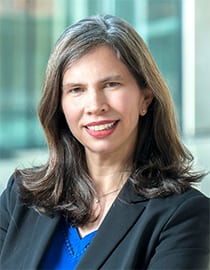 Andrea Roth is a Professor of Law. She joined the Boalt faculty in 2011 after a tenure as a Thomas Grey Fellow at Stanford Law School. Before Stanford, she worked for over eight years as a trial and appellate attorney at the Public Defender Service for the District of Columbia (PDS). At PDS she was a founding member of a Forensic Practice Group, which studied and litigated forensic DNA typing. She has lectured nationally on forensic science-related issues. She is also a member of the Constitution Project’s National Committee on DNA Collection and is an affiliate of the National Institute of Standards and Technology’s Organization of Scientific Area Committees (OSAC) for forensic science. Her research focuses on the use of forensic science in criminal trials, the continuing viability of the lay jury, and the ways in which concepts of criminal procedure and evidentiary law must be re-theorized in an era of science-based prosecutions.
Andrea Roth is a Professor of Law. She joined the Boalt faculty in 2011 after a tenure as a Thomas Grey Fellow at Stanford Law School. Before Stanford, she worked for over eight years as a trial and appellate attorney at the Public Defender Service for the District of Columbia (PDS). At PDS she was a founding member of a Forensic Practice Group, which studied and litigated forensic DNA typing. She has lectured nationally on forensic science-related issues. She is also a member of the Constitution Project’s National Committee on DNA Collection and is an affiliate of the National Institute of Standards and Technology’s Organization of Scientific Area Committees (OSAC) for forensic science. Her research focuses on the use of forensic science in criminal trials, the continuing viability of the lay jury, and the ways in which concepts of criminal procedure and evidentiary law must be re-theorized in an era of science-based prosecutions.
Twitter: @andrealroth. Publications, courses, and more »
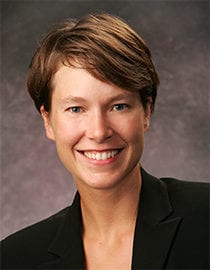 Molly Van Houweling is the Harold C. Hohbach Distinguished Professor of Patent Law and Intellectual Property. She joined the Berkeley Law faculty in the Fall of 2005 from the University of Michigan Law School, where was an Assistant Professor since 2002. Van Houweling’s teaching and research interests include intellectual property, law and technology, property, and food law. Publications, courses, and more »
Molly Van Houweling is the Harold C. Hohbach Distinguished Professor of Patent Law and Intellectual Property. She joined the Berkeley Law faculty in the Fall of 2005 from the University of Michigan Law School, where was an Assistant Professor since 2002. Van Houweling’s teaching and research interests include intellectual property, law and technology, property, and food law. Publications, courses, and more »
FELLOWS
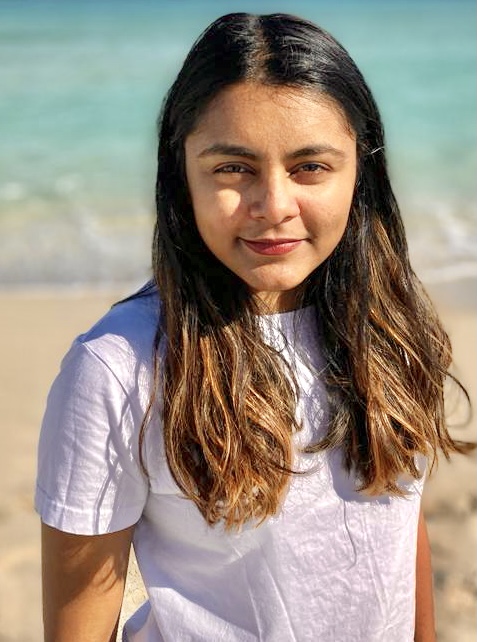 Ramya Chandrasekhar is a Biometric Regulatory research fellow at BCLT and leads the Biometrics Project. This project aims to study legal and institutional regulation of biometric data, from a critical and comparative perspective. Ramya worked with the Legal and Innovation team at the World Bank as an International Finance and Development Fellow, on personal data protection enforcement involving digital platforms. She has also collaborated with the Information Communication and Technology team at UNICEF as well as Guarini Global Law & Tech, on projects relating to digital risk and data governance within international organizations. Ramya is a lawyer by training and is qualified to practice at the bar in India. She holds a Master of Law from New York University, and a Bachelor of Law from the West Bengal National University of Juridical Sciences. She also has over 4 years of experience working with law firms, civil society, and academic research centers on a range of issues at the intersection of law and technology, including digital ID and the digital welfare state, surveillance, information privacy, and Fintech regulation. Ramya’s research interests lie in global data law, critical data studies and science and technology studies.
Ramya Chandrasekhar is a Biometric Regulatory research fellow at BCLT and leads the Biometrics Project. This project aims to study legal and institutional regulation of biometric data, from a critical and comparative perspective. Ramya worked with the Legal and Innovation team at the World Bank as an International Finance and Development Fellow, on personal data protection enforcement involving digital platforms. She has also collaborated with the Information Communication and Technology team at UNICEF as well as Guarini Global Law & Tech, on projects relating to digital risk and data governance within international organizations. Ramya is a lawyer by training and is qualified to practice at the bar in India. She holds a Master of Law from New York University, and a Bachelor of Law from the West Bengal National University of Juridical Sciences. She also has over 4 years of experience working with law firms, civil society, and academic research centers on a range of issues at the intersection of law and technology, including digital ID and the digital welfare state, surveillance, information privacy, and Fintech regulation. Ramya’s research interests lie in global data law, critical data studies and science and technology studies.
 Dr. Yuan Hao also serves as a Senior Fellow at BCLT’s Asia IP & Competition Law Center. Dr. Hao taught patent law and anti-monopoly law (“AML”) at the School of Law, Tsinghua University (2015-2020). Yuan has published academic papers and articles in the fields of patent law, competition law, data protection, and nanoelectronics. Dr. Hao has advised several IP and AML legislation projects in China. She has also participated in a dozen litigation, administrative investigation and arbitration cases, including landmark SEP cases, as an advisory panel member or expert witness.
Dr. Yuan Hao also serves as a Senior Fellow at BCLT’s Asia IP & Competition Law Center. Dr. Hao taught patent law and anti-monopoly law (“AML”) at the School of Law, Tsinghua University (2015-2020). Yuan has published academic papers and articles in the fields of patent law, competition law, data protection, and nanoelectronics. Dr. Hao has advised several IP and AML legislation projects in China. She has also participated in a dozen litigation, administrative investigation and arbitration cases, including landmark SEP cases, as an advisory panel member or expert witness.
 Marice Ashe is the founder of the national nonprofit, ChangeLab Solutions, where she served as CEO for nearly 25 years and pioneered the use of law and policy to solve complex problems related to institutionalized inequities and poor community health outcomes.
Marice Ashe is the founder of the national nonprofit, ChangeLab Solutions, where she served as CEO for nearly 25 years and pioneered the use of law and policy to solve complex problems related to institutionalized inequities and poor community health outcomes.
 Jared Bobrow is a Partner at Orrick, where he serves on the management committee and he was the previous co-chair of the firm’s global Intellectual Property practice. He teaches patent litigation and has spoken and written on patent law, patent litigation, and trade secret matters.
Jared Bobrow is a Partner at Orrick, where he serves on the management committee and he was the previous co-chair of the firm’s global Intellectual Property practice. He teaches patent litigation and has spoken and written on patent law, patent litigation, and trade secret matters.
 Steven Carlson is a Partner at Robins Kaplan. He is an intellectual property litigator who draws upon national and international experience to assist clients with a wide range of legal disputes, including patent litigation, trade secret matters, and copyright disputes.
Steven Carlson is a Partner at Robins Kaplan. He is an intellectual property litigator who draws upon national and international experience to assist clients with a wide range of legal disputes, including patent litigation, trade secret matters, and copyright disputes.
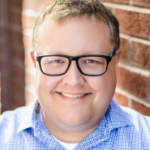 Adam Cole is a Senior Associate in the San Francisco – SOMA office of Wilson Sonsini Goodrich & Rosati. Adam’s practice focuses on strategic intellectual property counseling in a variety of technical areas, including genomics, nucleic acid sequencing, molecular diagnostics, materials science, engineering, and other life science and biotechnological arts.
Adam Cole is a Senior Associate in the San Francisco – SOMA office of Wilson Sonsini Goodrich & Rosati. Adam’s practice focuses on strategic intellectual property counseling in a variety of technical areas, including genomics, nucleic acid sequencing, molecular diagnostics, materials science, engineering, and other life science and biotechnological arts.
 Chris de Mauny is a Partner at Bird & Bird San Francisco’s office. Chris advises clients from a range of industries including tech, life sciences, and sustainable technologies. He also advises on all forms of intellectual property litigation, principally patents.
Chris de Mauny is a Partner at Bird & Bird San Francisco’s office. Chris advises clients from a range of industries including tech, life sciences, and sustainable technologies. He also advises on all forms of intellectual property litigation, principally patents.
 Tracy Genesen serves as Vice President & General Counsel for the Wine Institute, a legal advocacy and public policy association comprised of more than a thousand members that collectively account for over 85 percent of United States wine production and 90 percent of United States wine exports. She specializes in regulatory and corporate law, with an emphasis on the alcoholic beverage industry.
Tracy Genesen serves as Vice President & General Counsel for the Wine Institute, a legal advocacy and public policy association comprised of more than a thousand members that collectively account for over 85 percent of United States wine production and 90 percent of United States wine exports. She specializes in regulatory and corporate law, with an emphasis on the alcoholic beverage industry.
 Jeff Homrig is a first-chair trial lawyer who handles complex and high-stakes intellectual property and commercial cases around the country for some of the world’s most innovative technology and life sciences companies. He serves as Vice Chair of Latham’s Intellectual Property Litigation Practice.
Jeff Homrig is a first-chair trial lawyer who handles complex and high-stakes intellectual property and commercial cases around the country for some of the world’s most innovative technology and life sciences companies. He serves as Vice Chair of Latham’s Intellectual Property Litigation Practice.
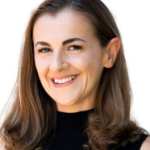 Eneda Hoxha is Director of IP for ReCode Therapeutics, the first genetic medicines platform to enable highly targeted delivery to organs, tissues, and cells beyond the liver. Previously, she worked at Latham and Watkins, where she worked on IP litigation matters for companies ranging from small startups to the most successful biotechnology companies in the world.
Eneda Hoxha is Director of IP for ReCode Therapeutics, the first genetic medicines platform to enable highly targeted delivery to organs, tissues, and cells beyond the liver. Previously, she worked at Latham and Watkins, where she worked on IP litigation matters for companies ranging from small startups to the most successful biotechnology companies in the world.
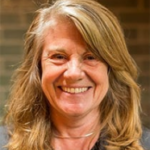 Barbara McClung is the Chief Legal Officer at Caribou Biosciences. She specializes in IP and corporate legal strategies, with an emphasis on life sciences. Prior to joining Caribou, Ms. McClung was Vice President, General Counsel, and Corporate Secretary at Intarcia Therapeutics, Inc.
Barbara McClung is the Chief Legal Officer at Caribou Biosciences. She specializes in IP and corporate legal strategies, with an emphasis on life sciences. Prior to joining Caribou, Ms. McClung was Vice President, General Counsel, and Corporate Secretary at Intarcia Therapeutics, Inc.
 Sonal Mehta is a Partner at WilmerHale. She represents many of the world’s leading technology and life sciences companies in high-stakes patent and technology disputes across a wide range of industries.
Sonal Mehta is a Partner at WilmerHale. She represents many of the world’s leading technology and life sciences companies in high-stakes patent and technology disputes across a wide range of industries.
 Jeffrey Ostrow was a Partner (ret.) at Simpson Thacher and Chair of the IP Practice Group. He is recognized as a Litigation Star for Intellectual Property by Euromoney’s Benchmark Litigation and recognized by the Daily Journal as among the Top 100 IP Lawyers in California.
Jeffrey Ostrow was a Partner (ret.) at Simpson Thacher and Chair of the IP Practice Group. He is recognized as a Litigation Star for Intellectual Property by Euromoney’s Benchmark Litigation and recognized by the Daily Journal as among the Top 100 IP Lawyers in California.
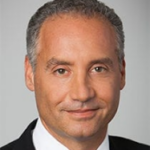
Ed Reines is a Partner at Weil Gotshal and co-head of the Patent Litigation and Life Sciences practice, with a robust trial and appellate practice. Mr. Reines is also active in public service and is dedicated to supporting disabled veterans rights pro bono. He was the past President of the Federal Circuit Bar Association and was recognized by the Daily Journal as a Top Intellectual Property Lawyer.
 Michael Schallop is a Partner at Van Pelt, Yi & James. He has evaluated IP strategies and patent portfolios for investors and developed IP strategies and patent portfolios for emerging companies in Silicon Valley for over twenty years.
Michael Schallop is a Partner at Van Pelt, Yi & James. He has evaluated IP strategies and patent portfolios for investors and developed IP strategies and patent portfolios for emerging companies in Silicon Valley for over twenty years.
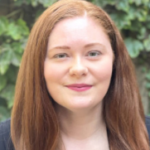 Allison Schmitt is a Fellow at Berkeley Law, and the Director of the Berkeley Center for Law and Technology’s Life Sciences Law and Policy Center. She specializes in studying the factors influencing innovation and regulation in the life sciences. Prior to her current role at BCLT, Allison clerked for the Honorable Stanley R. Chesler at the District of New Jersey, where she worked extensively on ANDA cases.
Allison Schmitt is a Fellow at Berkeley Law, and the Director of the Berkeley Center for Law and Technology’s Life Sciences Law and Policy Center. She specializes in studying the factors influencing innovation and regulation in the life sciences. Prior to her current role at BCLT, Allison clerked for the Honorable Stanley R. Chesler at the District of New Jersey, where she worked extensively on ANDA cases.
 Talha Syed is a Lecturer at Berkeley Law School. He specializes in patents and innovation policies for pharmaceuticals and healthcare allocation. He explores the normative foundations of health and innovation policy in several papers that examine both the opportunities and limits presented by “cost-effectiveness analysis” as a regulatory tool to supplement market or economic-efficiency measures of social welfare.
Talha Syed is a Lecturer at Berkeley Law School. He specializes in patents and innovation policies for pharmaceuticals and healthcare allocation. He explores the normative foundations of health and innovation policy in several papers that examine both the opportunities and limits presented by “cost-effectiveness analysis” as a regulatory tool to supplement market or economic-efficiency measures of social welfare.
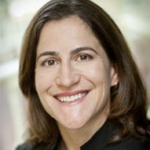
Tamar Todd is a legal director at New Approach PAC. She specializes in policy advocacy and regulatory implementation, including cannabis regulation and policy. Todd is the former legal director of the Drug Policy Alliance, where she was responsible for developing and overseeing the organization’s legal work .
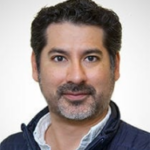 John Trinidad is a Partner in DP&F Law Firm’s Wine Law, Business, Alcohol Beverage, and Geographical Indications practice groups. John has expertise in a broad range of wine and alcohol beverage legal issues and in federal and state alcohol beverage regulations.
John Trinidad is a Partner in DP&F Law Firm’s Wine Law, Business, Alcohol Beverage, and Geographical Indications practice groups. John has expertise in a broad range of wine and alcohol beverage legal issues and in federal and state alcohol beverage regulations.
 Mark Zemelman is a respected general counsel and executive with extensive legal and operational expertise at the leading edge of healthcare transformation. He led or oversaw the largest litigation matters at Kaiser Permanente, including class actions, False Claims Act cases, ERISA litigation, and payor-provider litigation.
Mark Zemelman is a respected general counsel and executive with extensive legal and operational expertise at the leading edge of healthcare transformation. He led or oversaw the largest litigation matters at Kaiser Permanente, including class actions, False Claims Act cases, ERISA litigation, and payor-provider litigation.
 Rachel Zuraw is the Director of LL.M Professional Development at Berkeley Law. Rachel specializes in healthcare litigation, compliance, and bioethics. She started her litigation career at O’Melveny & Myers LLP, where she was a member of both the Class Action practice group and the Intellectual Property & Technology practice group.
Rachel Zuraw is the Director of LL.M Professional Development at Berkeley Law. Rachel specializes in healthcare litigation, compliance, and bioethics. She started her litigation career at O’Melveny & Myers LLP, where she was a member of both the Class Action practice group and the Intellectual Property & Technology practice group.
Antitrust
Berkeley IP Practicum
Biotechnology Law
Biodiversity Law
Disruptive Technologies & Regulation
Food Law and Policy
Hot Topics in Life Sciences – IP & Privacy
Intellectual Property Law
IP and Human Creativity in the AI Age
Law & Technology Writing Workshop
Law and Technology Colloquium
Life Sciences Innovation Workshop
Life Sciences Law and Entrepreneurship
Life Sciences Transactional Practice
Patent Law
Patent Litigation I
Patent Litigation II
Patent Prosecution
Preparing to Practice Patent Law for 1Ls
Public Health Law
Selected Topics in Venture Capital
Technology for Lawyers
Topics in Pharmaceutical Policy: The Case of Biotherapeutics
Trade Secret Law
Transnational Intellectual Property Law
Unified Patent Court: A New European Patent Litigation Forum
US F.D.A. Drug Development and Policy
Venture Capital Deal Bootcamp
Venture Capital in Practice
Venture Capital Law and Finance
Venture Funds: Structuring, Advising and Regulating
Algorithms, Patents, and Trade Secrets: Law and Practice, UCSF Catalyst 2024 Summer Internship Workshop Series Lecture
July 17, 2024 | Virtual
Allison Schmitt, Guest Lecturer
2nd BCLT Advanced Life Sciences Institute
May 21-22, 2024 | Virtual | Available on B-CLE
AI Algorithms & IP (Patents and Trade Secrets)—Law and Practice, UCSF/Berkeley Joint Program in Computational Health & Berkeley-Haas Center for Healthcare Marketplace Lecture Series
May 6, 2024 | Virtual
Allison Schmitt, Guest Lecturer
FDA & Pharma Litigation Issues, Public Health 236: US Food and Drug Administration, Drug Development, Public Health and Policy, UC Berkeley School of Public Health
May 6, 2024 | Berkeley, CA
Allison Schmitt, Guest Lecturer
IP Considerations for Early-Stage Life Sciences Entrepreneurs, UC Berkeley School of Public Health–Taiwan Accelerator Program
March 20, 2024 | Berkeley, CA
Allison Schmitt, Guest Lecturer
24th Annual Berkeley–Stanford Advanced Patent Law Institute
December 8-9, 2023 | Palo Alto, CA | Available on B-CLE
- Enablement and Written Description Requirements in a Post-Amgen World
- Paths for Protecting Innovation: Comparing Trade Secrets and Patents
- Protecting Trade Secrets Through Contracts: Employment Agreements and NDAs
- The Future of Patent Enforcement: UPC v US Courts
- Best Practices in Patent Drafting: Addressing 112 and Enablement After Amgen
- Client Counseling: Trade Secrets for Patent Prosecutors
WIPO International Patent Case Management Summit
December 5-6, 2023 | Berkeley, CA
2023 BCLT Privacy Law Forum – Life Sciences
November 14, 2023 | Virtual | Available on B-CLE
Biotechnology & Inventorship – What You Need To Know (3-part BCLT series)
September-October 2023 | Virtual | Available on B-CLE
Berkeley/GW Law Roundtable on the Recent PTAB Rules Package
June 6, 2023 | Virtual
Berkeley Law IP & Tech Month
June 2023 | Virtual | Available on B-CLE
- Life Sciences Year in Review
- FDA Year in Review
- Biometric Law Year in Review
- Tech Transactions Year in Review
- Life Sciences Transactions Year in Review
- Regulatory & IP Developments in Gene Edited Plants – Year in Review
The Supreme Court and Amgen: What Could Possibly Go Wrong?, Rocky Mountain IP Institute
June 1, 2023 | Westminister, CO
Allison Schmitt, Panelist
FDA & Pharma Litigation Issues, Public Health 236: US Food and Drug Administration, Drug Development, Public Health and Policy, UC Berkeley School of Public Health
April 20, 2023 | Berkeley, CAA
Allison Schmitt, Guest Lecturer
Governance & Liability for Medical AI, David E. Nelson Memorial Lecture
April 13, 2023 | Berkeley, CA
IP Considerations for Early-Stage Life Sciences Entrepreneurs, UC Berkeley School of Public Health – Taiwan Accelerator Program
April 5, 2023 | Berkeley, CA
Allison Schmitt, Guest Lecturer
11th Annual BCLT Privacy Law Forum
March 8, 2023 | Virtual | Available on B-CLE
- Biometric Privacy in the U.S.
- Threats to Bodily and Intimate Privacy
- EU Privacy Law – What’s Next for EU-US Data Transfers?
- Biometric Privacy Abroad
Biometrics Regulation: Global State of Play
February 22-23, 203 | Virtual | Available on B-CLE
ANDA & BPCIA Case Management, FJC/BCLT/Berkeley Law Judicial Summit
January 27-28, 2023 | Wilmington, DE
BCLT/Bakar Labs Panel – What Your IP Lawyer Wishes You’d Known Before Starting Your Company
November 17, 2022 | Virtual
The USPTO-FDA Collaboration: Laying the Foundation for the Life Sciences Industry and Beyond
November 14, 2022 | Virtual
USPTO AI/ET Partnership Stakeholder Meeting #2: Convergence of AI and Biotech
September 22, 2022 | San Jose, CA
Allison Schmitt, Panelist
USPTO Silicon Valley Listening Panel
May 25, 2022 | San Jose, CA
Allison Schmitt, Panelist
Berkeley Law IP & Tech Month
May 2022 | Virtual
- Life Sciences Year in Review
- U.S. Life Sciences Patent Prosecution Year in Review
1st BCLT Advanced Life Sciences Institute
April 22, 2022 | East Palo Alto, CA
- Protecting IP and Litigating into Uncertainty: Update on Application of Section 112 (April 13, 2022 | Virtual)
- Carving Out Induced Infringement: Update on Skinny Labels (April 6, 2022 | Virtual)
22nd Annual Berkeley-Stanford Advanced Patent Law Institute
December 9-10, 2021 | Palo Alto, CA
- Prosecution Uncertainty: Thoughts About Planning for The Long Game
- 112 Enablement and Written Description: The Future of Genus Claims and Functional Claiming
- Managing International Patent Prosecution
Berkeley Law AI Institute
November 10, 2021 | Virtual
- AI, Life Sciences, and Healthcare
BTLJ/CMTL/BCLT Symposium—Race & Technology Law: Innovating Health Equity
November 10, 2021 | Virtual
The Life Sciences Law & Policy Center explores a wide range of research topics relevant to the life sciences industry, including intellectual property protection for drug innovations, bioethics, FDA regulations, AI and healthcare data, and health data privacy regulations. Current research topics include:
- IP protection for life sciences inventions, including subject matter eligibility, written description and enablement, and application of trade secrets;
- Drug pricing and competition issues in the pharmaceutical industry;
- Comparative life science litigation and regulation issues related to pharmaceutical development worldwide;
- Emerging challenges with regulation and litigation on transformative life sciences technologies;
- IP protection and regulatory issues related to technologies that integrate life sciences and high technology, such as AI and digital health;
- Use of data in pharmaceutical and healthcare spaces, and the privacy issues arising from that use including informed consent;
- Public health issues on a global level, including issues related to preparedness for future pandemics; and
- Promoting equity and justice in healthcare.
Patenting your invention is just one step in moving your technology towards commercialization. You need to ensure that you are not infringing on existing patents that could limit your ability to apply your technology. Ensuring that you have an IP landscape free of obstacles (“freedom to operate”) is crucial to your company’s ability to attract investment, but this work can take many hours of a patent attorney’s time and can be very expensive.
To bridge this gap for early-stage start-up companies, the Berkeley Center for Law and Technology hosts the Berkeley IP Practicum, in which selected companies will work with a team of law students with technical backgrounds and an experienced attorney from a top law firm to perform an IP landscape or freedom-to-operate analysis.
To participate in this program, selected companies must commit to interacting with their assigned student teams weekly or as needed by the student team, and to remain engaged in the Practicum for the entire project (approximately 3 months, from January through April 2025). The Practicum itself will require a time commitment of at least 4-8 hours from the startup.
This is a selective program. Start-up applicants will learn by mid-December whether they have been selected for the Spring 2025 program. Applications for the Spring 2025 cohort are now closed.

